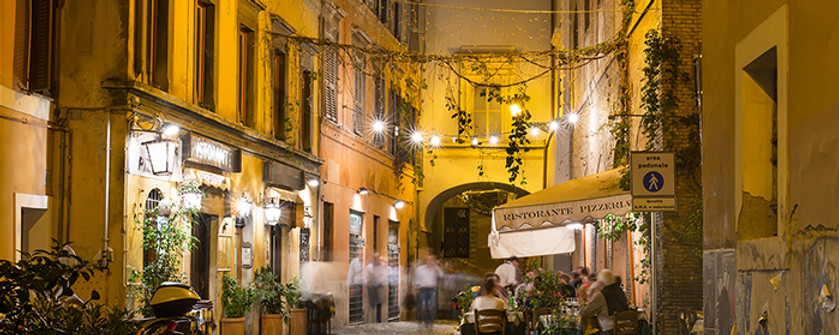Good Vibes Home Finder

Mortgage Types
There are two types of mortgages available in Italy: variable rate mortgage and fixed rate mortgage. Variable rate accounts for more than two-thirds of the mortgage market.
Fixed rates are less popular because the rate is set for the entire loan term and is just 1% to 2% above the initial variable rate.
Self-certified mortgages are not an option in this country. Buyers have to prove that their income levels are sufficient to cover the mortgage payments.
Documents
Italian bureaucracy is clearly evident in its mortgage application procedure. There is a host of documents that need to be furbished to the bank. In addition to the application form, expats need to submit copies of their passport or ID card, address proof, mortgage repayment schedule, proof of purchase (the sale agreement), property ownership proof and income proof (balance sheet, last 3 pay-slips, last 2/3 tax certificates, employment contract). The verification of these documents usually takes a long time and therefore the bank may take a few weeks to approve the mortgage.
All mortgage applicants need to have an Italian bank account before the mortgage is approved. This account will be used for repayment of the loan.
Finance Terms
Depending upon the valuation of a property, banks generally lend around 60% to 70% of the assessed value to an expat. This could go as high as 85% in a few instances. Some lenders in Italy impose a minimum loan amount of €50,000. The buyer needs to make a down payment of the remaining amount.
Home loans can be taken for a period ranging anywhere between 5 and 30 years. On average, mortgages in this country last for 15 to 20 years. All loans need to be paid off in full before an individual turns 85.
The monthly repayments are calculated in a way that they do not absorb more than one-third of the buyer’s income. People with relatively lower incomes therefore need to apply for a lengthier mortgage.
The consequences for missing a mortgage payment in this country are serious.
Fees and Interests
Mortgage fees in Italy tend to be on a higher side as compared to the US and the UK because of limited competition and demand. Some of the charges that a mortgage applicant may have to incur include:
Bank arrangement fee: Between 0.4% and 0.7% of the loan amount
Bank completion cost: Between €100 and €160
Valuation fee payable to the surveyor: Between €200 and €250
Mortgage registration tax: 0.25% of the loan for main residence; 2% of the loan for second property
There may be other additional charges depending upon the lender and other parties involved. Mortgage interest rates however are low by international standards at 3.5%. Expats from the US may find this a bit high but if compared to the UK and other European nations, this rate is quite low.
Property-related Taxes
In addition to the actual price of the property, buyers should be prepared to shell out for other expenses, such as:
Imposta Catastali or cadastral tax: 2% of the property value
Registro or registration tax: 4% for residents & 10% for non-residents (of the cadastral value)
Imposta Ipotecario or government tax: Levied on all property loans in Italy
Imposta Comunale Sugli Immobile or property tax: 0.5% of the cadastral value
Swimming pool tax: Paid only if a pool is constructed on the property
Capital Gains tax: Charged when a house is resold within 5 years of purchase (26% for individuals)
Italy no longer levies any inheritance tax, regardless of the property’s value or the relationship between the heirs and the deceased.
Gift taxes don’t apply in case the property is transferred to the spouse, a descendant or relatives up to the fourth degree. Properties transferred to other benefactors are however subject to Gift tax.
All property owners in Italy are required to pay income tax on the theoretical rental income during the year.
Insurance
Mortgage approvals are often subject to properties being insured. The three biggest home insurance providers in Italy include Winterthur, Generali and Axa.
Life insurance is also one of the common mortgage conditions for expats buying property in Italy.